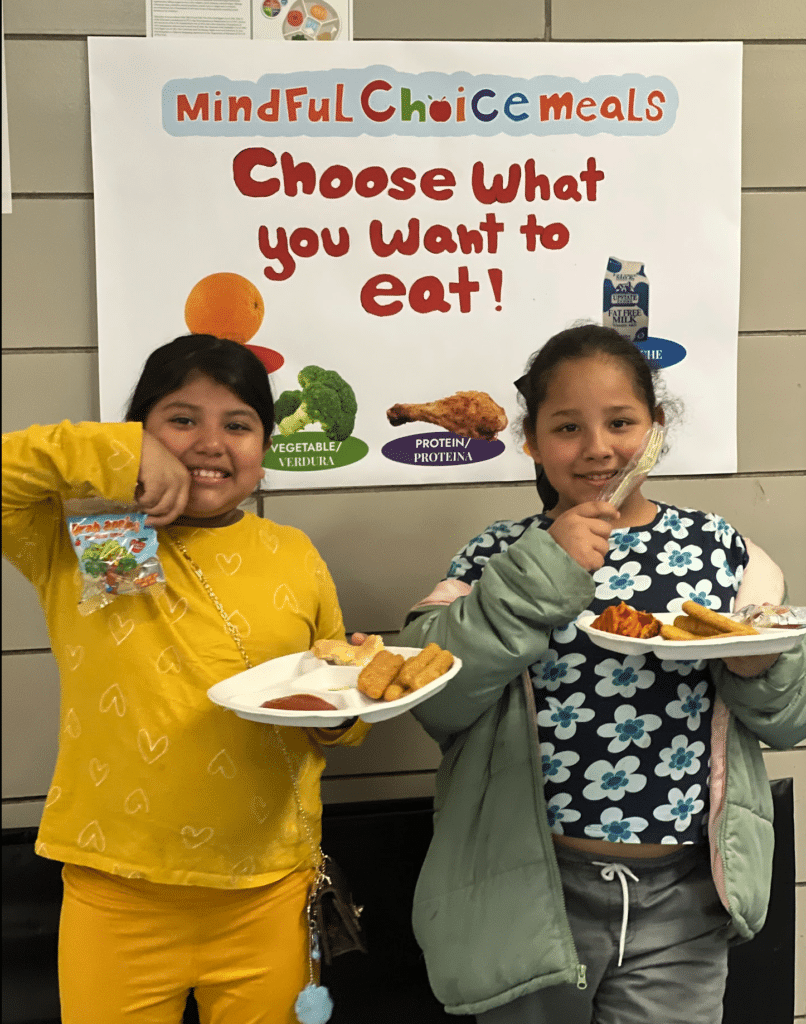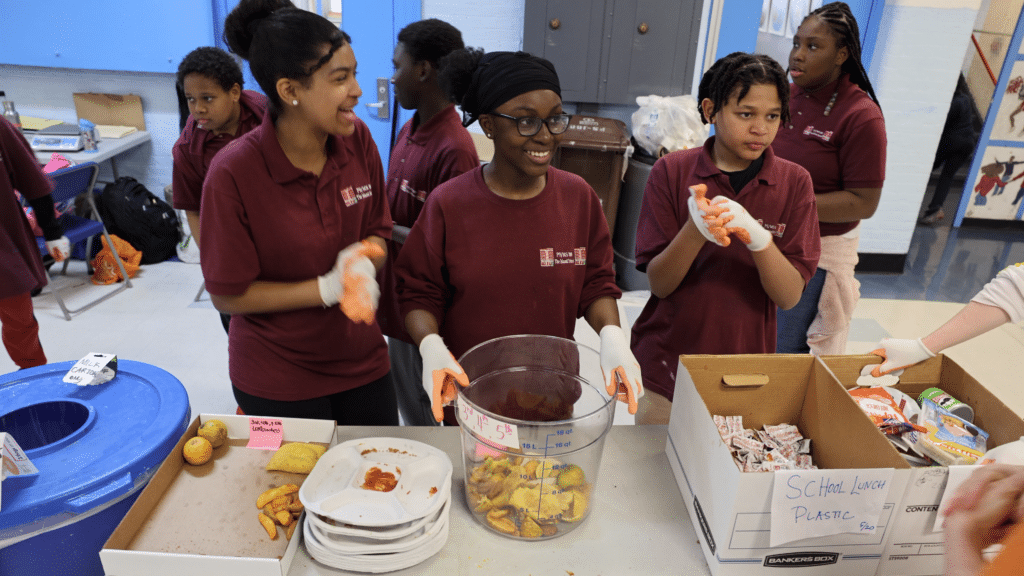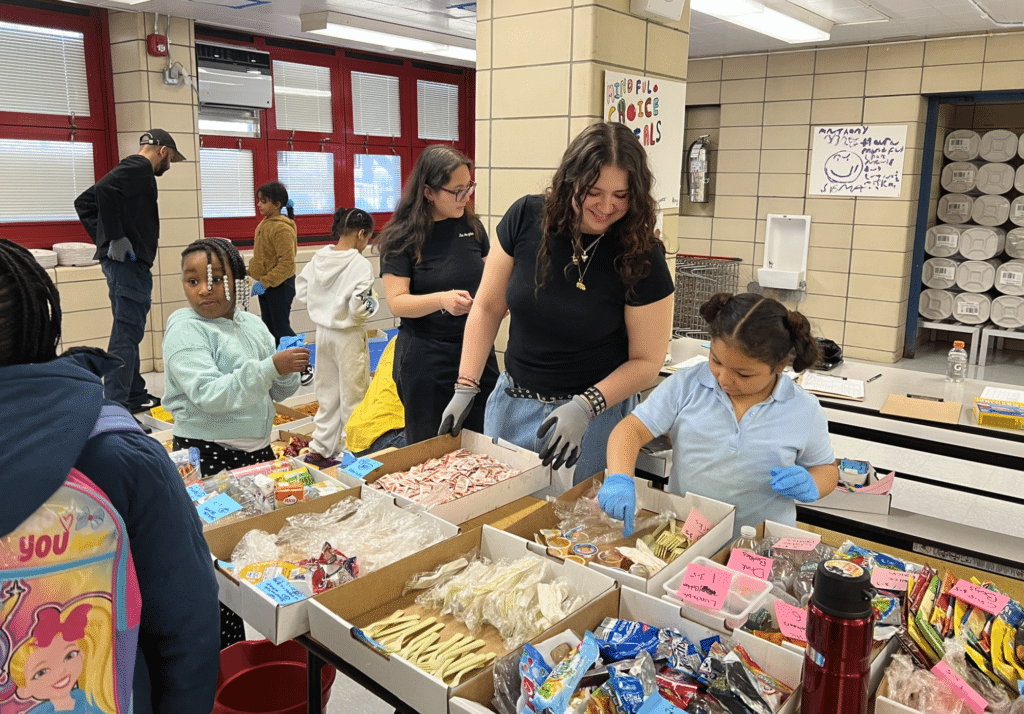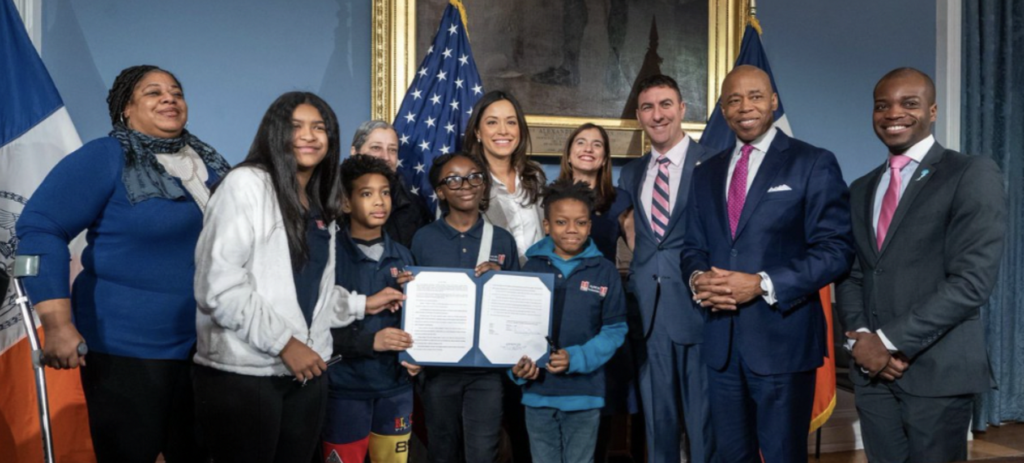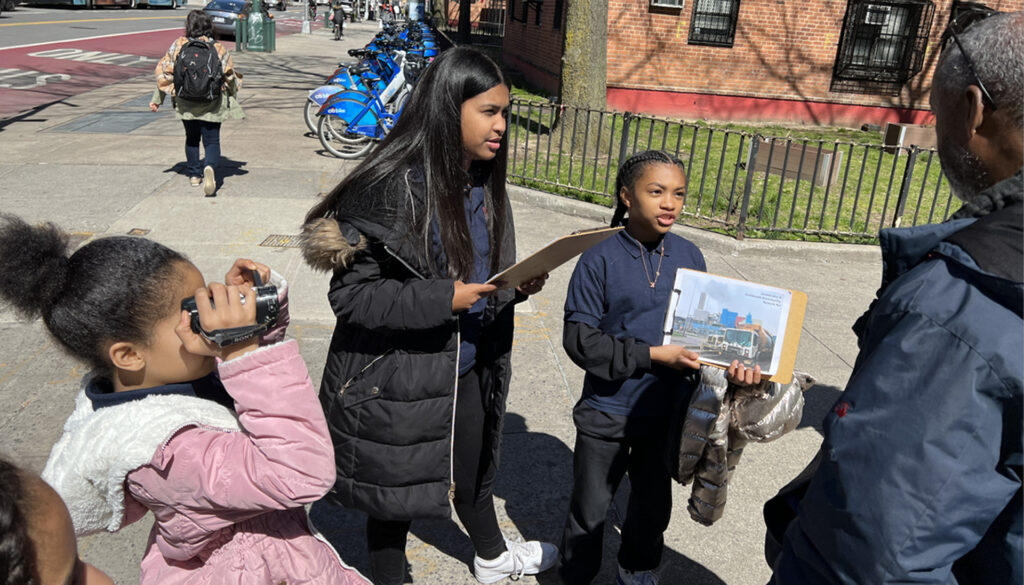Program Elements
Our approach to zero waste education is unique across the board.
We:
- Partner with students facing extreme hardship and who are the most dependent on the public school food system. Our approach gives them the opportunity to share their viewpoints and novel solutions as experts on issues from first hand experience that adults and the “system” often miss.
- Teach interdisciplinary zero waste/student leadership classroom curricula combined with place-based learning in the cafeteria, the community, and City Hall, framed with 21st Century learning skills of critical thinking, real-world problem solving, collaboration, media literacy, and global awareness
- Collect and analyze waste audit data, working collaboratively with students, that they then use – combined with their personal stories – to convince decision makers to make change (e.g. school food directors, New York City Council).
- Teach media production and storytelling as part of zero waste education, providing platforms for students to share their findings, personal narratives, and unique solutions to decision makers and the public.
Teaching Philosophy
At Cafeteria Culture, our teaching philosophy is rooted in trust, curiosity, and student voice. We see students as collaborators—thinking and acting together to solve real-world problems.
- Be part of the same team as the kids, thinking and acting together to solve problems. Rather than teaching and being taught, we walk hand-in-hand with the students, aiming for the same goal.
- Become a discovery facilitator, to engage children’s inquisitive nature and hold back from simply giving them answers. As they learn the facts, their antennae become alert, and when a question arises, we focus on what kind of questions or hints will help them discover their own answers or solutions.
- Cultivate the power to communicate in their own words. We have found over and over that when children feel that what they have said in their own words is heard and understood, their self-esteem increases. Students can all improve at their own pace through practice and successful experiences within their own individual differences in the ability to communicate through their own words.
- Determine together which decision-makers can help make these real-world changes. Our students tap into the power to convey their message in their own words and develop a desire to continue to communicate with others. Continued communications gives them the experience of how a democratic society works and who they can speak with and share their data to voice their opinions and make real -world change.

